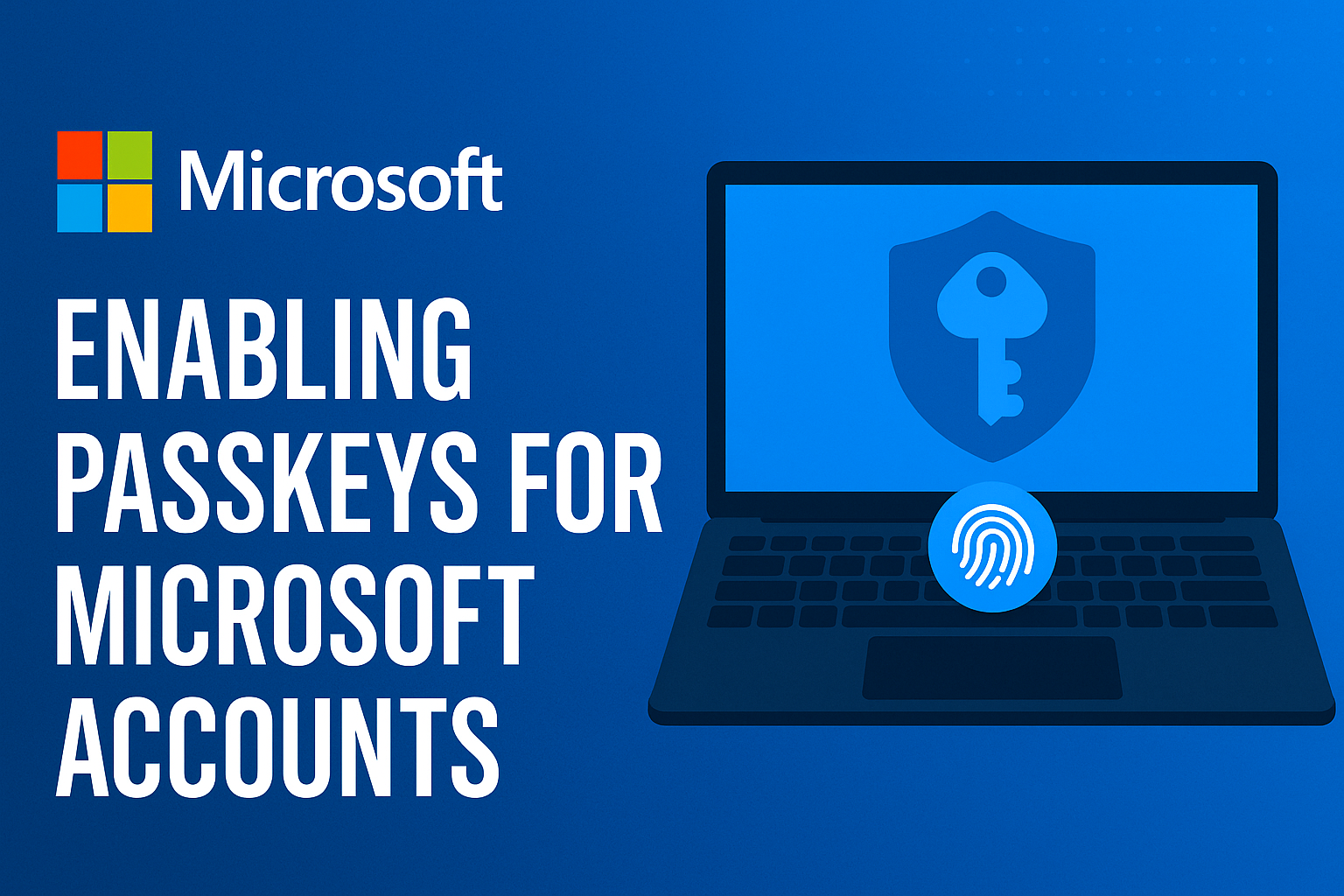On World Password Day, Microsoft announced a pivotal update in user authentication: Windows users can now access their Microsoft consumer accounts using passkeys. This move marks a critical shift toward a password-less future, reinforcing cybersecurity against phishing and credential theft.
Microsoft consumer accounts—encompassing services like Windows, Office, Outlook, OneDrive, Xbox Live, and Copilot—can now be accessed using secure, password-less methods such as Windows Hello, FIDO2 security keys, biometrics (face or fingerprint), or device-based PINs. This development builds on Microsoft’s earlier support for passkeys in Windows-based apps and websites, now extending full integration across their consumer ecosystem.
Passkeys use public-key cryptography. The public key resides on Microsoft’s servers, while the private key remains secured on the user’s personal device. Authentication is achieved by solving a cryptographic challenge, triggered during login, using biometrics or a PIN. Unlike passwords, the private key is never transmitted—rendering interception futile.
This approach offers robust resistance to phishing, minimizes attack surfaces, and reduces reliance on risky password practices such as reuse or weak credential creation. Furthermore, passkeys are designed for cross-platform compatibility, streamlining access across Windows, Android, iOS, macOS, and major browsers including Chrome, Edge, and Safari.
However, Microsoft’s method of syncing passkeys across user devices—intended to improve usability—may slightly weaken the model’s integrity. If a malicious actor gains control of a user account, they could potentially replicate passkeys on their device. Microsoft defends this trade-off as necessary to ensure users can maintain access even when switching or losing devices.
To enable passkeys, users must visit their account settings, choose a biometric or PIN-based option, and follow platform-specific instructions. Supported systems include Windows 10+, macOS Ventura+, iOS 16+, Android 9+, and the latest versions of Chrome, Safari, and Edge.
Microsoft’s adoption of passkeys is a significant milestone in modern cybersecurity, aligning with the Zero Trust philosophy: trust no one, verify everything. By eliminating static credentials and enforcing stronger user-device authentication, Microsoft positions itself at the forefront of secure, user-centric digital identity.

